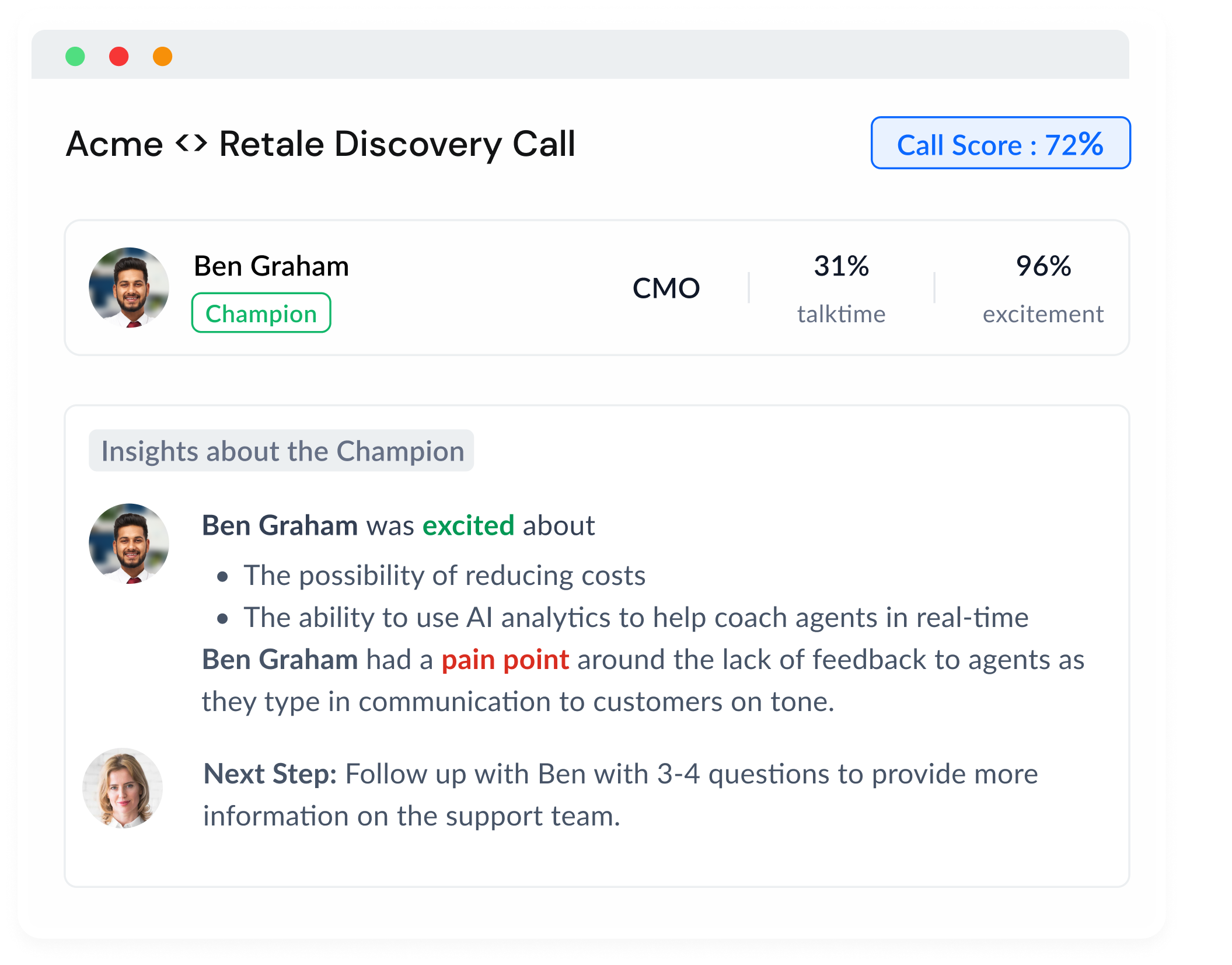Introduction
Ever wondered what Sherlock Holmes and top-performing sales reps have in common? You might be shaking your head, but brace yourself for an unexpected revelation! It turns out that they share an uncanny ability to deduce facts from seemingly unrelated information. In this blog post, you'll learn how to channel your inner Sales Sherlock and use the power of deduction to understand customer needs and close more deals. Elementary, my dear Watson (or should I say, Sales Professional?)
The Art of Deductive Reasoning in Sales
What is Deductive Reasoning in Sales?
Deductive reasoning in sales refers to the process of drawing conclusions based on available information, observations, and logical thinking. It's about finding hidden patterns, making connections, and understanding the customer's underlying needs and motivations.
In essence, deductive reasoning helps you identify the clues your customers leave behind and use them to craft the perfect sales pitch. Armed with this powerful skill, you'll be solving sales mysteries and cracking cases like a true Sales Sherlock!
Why is Deductive Reasoning important in Sales?
Now you may be wondering, "Why should I worry about becoming a Sales Sherlock? I'm already doing pretty well with my current techniques." Well, here's why:
1. Understanding customer needs: Clients appreciate it when sellers genuinely understand their needs and offer solutions tailored to their specific situation. Deductive reasoning helps you uncover those unspoken needs by paying attention to the small details and asking the right questions.
2. Boosting sales performance: Just like Sherlock Holmes, having a keen eye for detail can reveal valuable insights into your prospect's pain points and preferences. Armed with this knowledge, you can tailor your approach to address their concerns and present your product or service as the ultimate solution, thus increasing your chances of closing the deal.
In a world where buyers are more informed and have higher expectations than ever before, relying on generic pitches simply won't cut it. Time to don your detective hat and aim for nothing less than sales greatness!
Becoming a Sales Sherlock: How to Hone Your Deductive Reasoning Skills
Now that you understand the importance of deductive reasoning in sales, it's time to learn how to master it. Get ready to unleash your inner Sales Sherlock with these three skill-building strategies:
Mastering the Art of Observation
"You see, but you do not observe," Sherlock Holmes once told Dr. Watson. Holmes was on to something, as developing razor-sharp observational skills can give you a significant edge in sales. Here's how:
1. Active listening: Pay attention to what your prospects say – and what they don't say. Listen not just to the words, but also to the tone, emotion, and body language (if applicable) behind them. By actively listening, you'll find the important details that reveal their true needs and concerns.
2. Reading between the lines: Always be on the lookout for subtle cues that can provide valuable insights into your prospect's thought process. This could include their choice of words, hesitations during the conversation, or any patterns you notice regarding how they present their challenges.
Logical Reasoning: Connecting the Dots
Observations are only part of the equation. Using deductive reasoning, you'll need to connect the dots between the information you gather to build a complete picture of your client's needs. Here's how to sharpen your logical reasoning skills:
1. Spotting patterns and trends: Deductive reasoning requires you to make connections between seemingly unrelated information. Analyze the data you have and try to identify patterns or trends that could offer insights into your prospect's preferences and needs.
2. Asking the right questions: Prepare open-ended questions that encourage prospects to share their thoughts and experiences. This will provide valuable insights and help you understand their priorities. Remember, the best detectives (like our friend, Holmes) always ask probing questions that allow them to uncover the information they need.
Keen Insights: Next-Level Sales Strategy
Once you've mastered observation and logical reasoning, it's time to use those skills for crafting personalized solutions for your prospects. Here's how:
1. Identifying the "so what?": When presenting the value of your product or service, focus on what truly matters to your prospect. Unearth the "so what?" in your solution: what specific benefits does it bring to them? Address their specific concerns, tailor your pitch, and demonstrate how your offering solves their problem.
2. Crafting personalized solutions: With your keen understanding of the prospect's needs, preferences, and pain points, you can now create a solution specifically designed for them. Make sure your proposal highlights how your offering addresses their unique issues and provides them with the desired outcome.
Now that you've mastered the art of deductive reasoning in sales, it's time to delve into a powerful tool that can further enhance your skills: Sybill!
Using AI to Power Your Deductive Reasoning: Enter Sybill
Integrating AI in your Sales Arsenal: Sybill
All great detectives need powerful tools, and Sales Sherlocks are no exception. That's where Sybill comes in, an AI platform designed to record sales conversations, transcribe them, and create call summaries, follow-up emails, and guides for closing more deals. It also boasts automatic CRM population based on call and email data for every opportunity.
Benefits of using AI-driven insights (like Sybill) for sales professionals
Empowered by AI, Sybill acts like a helpful assistant and coach for sales reps, enhancing your deductive reasoning skills. Here are some of the benefits Sybill offers:
1. Sales conversation recording and transcription: With Sybill's sales conversation analysis features, you can easily revisit past conversations, spot patterns, and gain insights into your prospect's requirements and preferences.
2. Creating call summaries and follow-up emails: Sybill generates call summaries and helps you compose follow-up emails that are highly customized to the prospect, incorporating the insights you gained through your deductive reasoning.
3. Guiding reps in closing deals: Sybill's AI-driven insights help you make data-backed decisions, fine-tune your sales strategy, and guide you through the process of closing deals with ease.
4. Populating CRM with relevant data: One of the cornerstones of successful deductive reasoning in sales is access to accurate information. Sybill ensures your CRM is up-to-date by automatically populating it with relevant call and email data for each opportunity.
Remember, real Sales Sherlocks are always on the lookout for ways to enhance their skills. So why not give Sybill a try and leverage AI-driven insights to close more deals!
Master Deductive Reasoning and Close Deals Like a Pro
With your newly acquired Sales Sherlock skills, you're well on your way to sales dominance. But your detective work doesn't stop there. Deductive reasoning in sales is a constant learning process, and practice makes perfect. Here are some tips to keep you at the top of your game:
Continuous learning and practice
Continuously work on improving your deductive reasoning skills by analyzing past sales interactions and identifying areas where you could have applied these techniques more effectively. Regular practice and reflection on your experiences will only help to solidify your Sales Sherlock skills.
The value of feedback and coaching
No skilled detective (even Sherlock himself) can solve every case alone. Don't hesitate to seek feedback from your peers, mentors, and sales coaches. Their insights and guidance will play a pivotal role in enhancing your deductive reasoning skills and overall sales performance.
The "Sales Sherlock" mindset
Finally, approaching sales with a Sales Sherlock mindset is essential to success. Be relentless in your pursuit of understanding your prospects' needs and preferences, while also willing to adapt and learn. Embrace a problem-solving attitude, and be genuinely curious about your clients – their satisfaction will ultimately lead to your success!
Conclusion
The impact of deductive reasoning on your sales success cannot be overstated. By harnessing your inner Sales Sherlock, you'll unlock deeper insights into your clients' needs and preferences, enabling you to offer personalized solutions and, ultimately, close more deals.
So, ready your detective hat, grab that magnifying glass (figuratively, of course), and embark on your journey to sales greatness. While there may not be any literal foggy cobblestone streets to stalk, the world of sales can still offer its fair share of intrigue and mystery.
Together with Sybill, you'll tackle those sales cases and master deductive reasoning – truly, the game is afoot, my dear Sales Professional! You have already covered all six sections outlined earlier, which culminated with the "Conclusion" section. The blog post is now complete as per the guidelines provided. However, if you need additional content or a different section, please let me know and I would be happy to write it.















.png)





